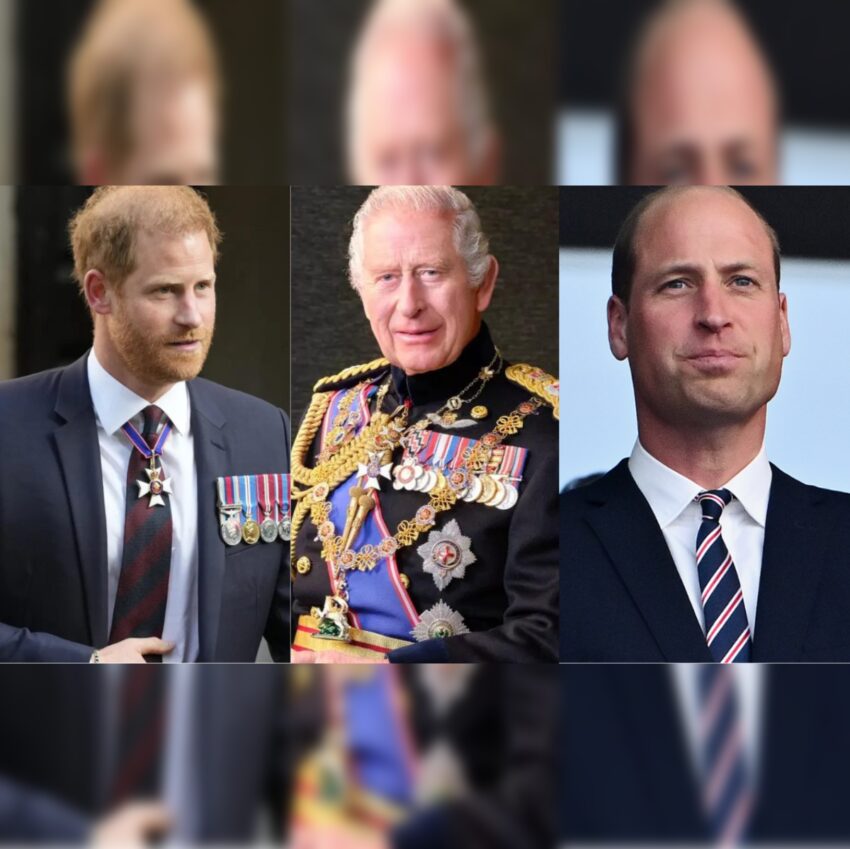In the world of royal affairs, change is often in the air, and right now, Prince Andrew finds himself at a crossroads regarding his residence at the Royal Lodge in Windsor.
Despite King Charles III’s attempts to encourage him to downsize, Andrew remains firm in his desire to stay put in the expansive estate he has called home for over two decades.
The Duke of York, now 64, signed a lengthy 75-year lease on the 30-bedroom mansion back in 2003, but recent developments could alter the course of his living situation.
Royal Lodge, nestled within 40 acres of picturesque grounds, has been a sanctuary for Andrew, but its future is becoming increasingly precarious.
With the royal family’s shifting priorities and mounting maintenance challenges, questions are arising about whether the Duke can continue residing there alongside his ex-wife, Sarah Ferguson.
Experts are stepping in to analyze the situation, shedding light on the complexities surrounding the property’s upkeep and the financial implications of its maintenance.
Terry Fisher, the chief executive of We Buy Any Home, recently shared insights with OK Magazine about the potential risks Andrew faces regarding his lease.
The Royal Lodge is in dire need of repairs, and without addressing these issues, the Duke could find himself breaching the terms of his lease agreement.
From structural repairs to climate control systems, the costs associated with maintaining such a historic estate can be overwhelming and time-consuming.
As Fisher pointed out, historic properties like the Royal Lodge require constant attention and care, especially as they age.
The financial burden of upkeep is significant, and with the reduction of funds previously available to working royals, Andrew might soon find himself in a tight spot.
Ignoring problems like dampness or structural wear could lead to even more severe issues down the line, not to mention skyrocketing repair costs.
The Royal Lodge is not just any residence; it holds historical significance that demands preservation.
Fisher emphasized that the Crown Estate, which oversees royal properties, expects them to be maintained in a manner befitting their heritage status.
If Andrew fails to meet these standards, the Crown Estate may intervene, potentially renegotiating his lease or challenging his continued occupancy.
Despite having a long-term lease, Andrew’s security at the Royal Lodge is not guaranteed.
The Crown Estate has considerable authority over the property’s future, and if the condition of the estate falls short of expectations, they could take action.
This places Andrew in a precarious position, where his ability to remain in the mansion hinges on meeting rigorous maintenance and preservation standards.
Moreover, King Charles III’s influence looms large over the Royal Lodge’s fate.
The monarch has expressed intentions to reorganize royal properties to better align with the family’s evolving needs.
Recently, King Charles made headlines by withdrawing Andrew’s privately funded security detail, a move that reflects a broader strategy aimed at streamlining royal finances and roles.
Additionally, the King has proposed Frogmore Cottage as a potential alternative residence for Andrew, but the Duke has shown reluctance to leave the Royal Lodge, which he prefers.
Fisher suggests that the King’s vision for the property could ultimately determine its future, as Charles may have different plans for how the estate fits into the royal family dynamics.
While Andrew’s 75-year lease appears to provide some level of security, the reality is that properties managed by the Crown Estate do not automatically pass down to heirs.
Thus, the prospect of Princess Beatrice and Princess Eugenie inheriting the Royal Lodge is uncertain.
If King Charles decides the estate should serve another purpose or be allocated to a different family member, Andrew’s wishes could easily be overridden.
The Crown Estate’s historical control over royal properties means that Andrew’s intentions might not carry the same weight as they would with privately owned estates.
As Fisher explains, the royal family’s long-term goals and Crown Estate policies will heavily influence whether Andrew can retain his residence and whether his daughters could inherit it in the future.
With King Charles’ growing authority and the practical challenges of maintaining the Royal Lodge, Prince Andrew is facing a tough reality.
While immediate eviction seems unlikely, the pressure to downsize or relocate is palpable.
The King’s recent decisions signal a trend toward reducing the royal family’s financial footprint, which could further diminish Andrew’s status within the household.
As the situation unfolds, the intersection of maintenance issues, royal priorities, and King Charles’ vision will play a crucial role in determining the Duke of York’s future at the Royal Lodge.
The uncertainty surrounding whether he can remain in this historic mansion or pass it down to his daughters reflects a complex web of factors that could shift at any moment.
The royal landscape is evolving, and only time will tell how these changes will impact Prince Andrew’s cherished home in Windsor.
